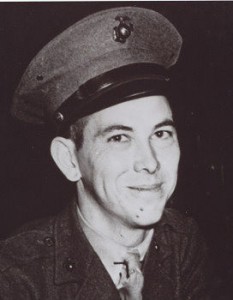R.E. McDermott's Blog, page 4
September 6, 2011
Michael Wallace's Journey
Michael Wallace is a rising star in the indie world, having just inked a five-book deal with Amazon's new thriller imprint. He's also generous, and for months has patiently answered my questions, and offered advice by email. In today's guest post, he shares his publishing journey
Note: Shortly after Michael sent me this post, Vermont endured disastrous flooding in Irene's wake. As he joins local volunteer relief efforts, Michael asks readers to consider a small donation to either of the following groups:
Vermont and NH Valley Red Cross
Mad River Valley Community Fund
And now Michael, in his own words:
My success as an indie writer has not been in the realm of the John Locke, J. Carson Black, or Amanda Hocking. Nevertheless, I've sold over 60,000 ebooks since January, and my series of polygamist thrillers, The Righteous, was just picked up by Amazon's new thriller line, Thomas & Mercer. I've had enough success as an indie and enjoy the total control of going it solo that I intend to keep publishing my own novels, no matter what happens with on the traditional publishing side.
Here are four pieces of advice I'd give to the aspiring indie writer.
* Work on your opening.
* Don't be sloppy with editing.
* Pay attention to your cover.
* Polish your blurb.
Readers are no more forgiving than editors or agents. They'll sample your book and if it doesn't grab them in a hurry, they'll drop it and move on to the next story without a twinge of guilt. The biggest cost for a reader is not the price, it's the hours spent when the reader could be reading something else. Just like you can step up to a display case of pastries and make a decision in a minute or less, so a reader can glance at your cover, blurb, reviews, and sample and decide if this looks worthy of time and money in a moment. You'll notice that editing, cover, blurb, and opening have something in common. They speak to your desire to be professional.
I made some mistakes with releasing imperfectly edited versions in the early days. Don't do this. Readers will mention this oversight in reviews, especially if you are an indie. Those reviews will stick there forever, long after you've fixed the formatting or the editing mistakes. Look at a couple of the poor early reviews of my books, if you don't believe me. All the glowing reviews by other readers won't erase those comments, and that was a totally self-inflicted wound, very unlike the kind of bad review that simply comes from not connecting with a reader.
Your cover and your blurb also give an important impression to the potential buyer. The cover can intrigue in the best of circumstances, but if amateurish or off in some way, tells the reader you're unlikely to care about the internal packaging of your book, either. Similarly, learn how to write a great hook for your product description. I know that this is a different skill than being able to write a compelling book–if you could tell the story in two paragraphs, why would you have bothered writing the book?–but you're a writer. Figure out how to make your blurb sound as enticing as possible.
Now, your opening. Don't give away too much, too soon. Remember, it's mystery that drives reader interest, not explanation. I think of the opening as a three legged stool: character, situation, and problem. If any one of these is out of balance, the stool will collapse. This is why an opening showing your character clinging to the edge of the cliff doesn't work any better than having a character wake up in her bed. The situation and problem are either too big or too small for our interest in the character at such an early stage. I like to start with a compelling character in an intriguing situation, trying to resolve some problem that is relatively small in scope. I don't immediately explain what this problem is, but if the reader sees intent on part of the main character, this is enough. When the time comes to explain this first little mystery, you should also have a bigger mystery waiting in the wings to ramp up reader interest.
Once you've got all the ingredients there, what should you try? A little bit of everything that is ethical, inexpensive, and doesn't take away from your goal of continuing to produce new work. Try giveaways, well-targeted ads like Pixel of Ink or eReader Review. Do guest blogs, visit boards and participate in such a way that doesn't come across as always talking about your book. Don't waste your money on advertising that is not carefully targeted.
The good news is that you don't need to panic if things don't take off right away. Unlike the limited shelf life of traditional books, your virtual library of offerings will always be there. Any time you've got men on base, the next batter has the opportunity to advance all your runners, not just the guy at the plate.
Links:
September 1, 2011
Adventures in Chinglish – Salivation
Everywhere I go, I work at the language. I've never really mastered a second language mind you, but my few functioning neurons are crowded with a confusing array of foreign phrases learned by rote and used at the slightest provocation. It's more about good will than communication. When you at least attempt to speak their language, even if you butcher it in the process, people are friendlier.
Language was most difficult in China, where my garbled efforts often evoked bemused looks, concealed smiles, or outright laughter. I didn't mind really. A person laughing at you will soon be laughing with you if you join in. And besides, there were any number of Chinese eager to perfect their own fractured English on me.
Shanghai has a booming market for translators. English signs are all over the place, often with a mixed message. Like those on a nearby restaurant. The place was named "Smart Noshery," in an apparent bid for the western expat trade, and an English slogan graced the marquee and was repeated on all three large windows. (In case the two foot high letters on the marquee were too subtle, I suppose.)
I think the intended sentiment was, "try our mouth-watering food." The result was a bit different.
Disclaimer: I have a lot of these pictures, and Adventures in Chinglish may become a regular feature here. However, in the interest of fairness, I should point out that I'm sure my own cultural mistakes were as comical to the Chinese as any photos you will see here.
August 25, 2011
M/T Luther Hurd – The Real Story
I never knew Uncle Giles. He was my Dad's kid brother, a young Marine who died when his Higgins boat grounded on a reef and took a direct hit from Japanese artillery off Tarawa Atoll. Dad never talked about it much, though I know it bothered him. There weren't any pictures of Uncle Giles around. For whatever reason, McDermotts weren't big on displaying pictures.
Six years ago, when emptying an old box, I found his picture. I saw a cocky young Marine in his twenties with a mischievous grin. He looked like he thought he'd help whip the Japanese and be home by Christmas. It struck a chord, and I tried to imagine this smiling young man's terror, jammed in a boat waiting for artillery to find the range.
It occurred to me that if one of my sons had found the photo, they'd likely have no idea who it was; and perhaps they wouldn't care. It's human nature I suppose, that childless aunts and uncles become footnotes, but I thought Uncle G deserved better. I had multiple copies of the picture framed. The original went up on our "ancestor wall," and I sent copies to my siblings and cousins. I taped a letter on the back with what I knew of Uncle Giles.
I received polite thanks, though I don't know who hung the pictures. I also heard from a cousin who thought "a ship had been named after him." I knew that unlikely. Ships were named for recipients of awards for uncommon valor. Through no fault of his own, Uncle G had no opportunity to display valor; except of course, the more common variety that put him in the boat in the first place.
I was only partially right. No ship was named for him, but one was dedicated to his memory. In 1944 in Beaumont, Texas, Pennsylvania Shipyards delivered the Luther Hurd. My grandparents attended the christening as honored guests and the ship was dedicated to the memory of PFC Giles J. McDermott USMC.
Luther Hurd operated in the Pacific, mainly hauling ammunition during MacArthur's campaigns in the Philippines. She was sold to foreign interests in 1947 and later scrapped.
When I began to write Deadly Straits, I tried to avoid using real ship names. That's more difficult than you might think, because people have been naming ships for a long time. Even when you make up a name, there's a pretty good chance it's been used before on anything from a yacht to a tug to a supertanker.
The one name I didn't avoid was Luther Hurd. Both my uncle and the ship dedicated to his memory were unexceptional by some measures, but both did their duty, and did it well. I thought there was a certain nobility there that shouldn't pass unhonored. So when I needed a heroic ship, I christened her M/T ( Motor Tanker) Luther Hurd, and crewed her with the likes of Vince Blake, Jim Milam, and Lynda Arnett. Ordinary people that rose to the occasion.
Deadly Straits is set in a very near future, so WWII references would have been a stretch. Instead I sneaked in this obscure tribute. It was a personal thing, and I never intended to blog about it. But very recently I ran across an excellent website called Tarawa on the Web, built and maintained by Jonathan Stevens. I wanted to spread the word, but knew it would seem a bit strange without some context.
Mr. Stevens started researching the war in the Pacific to learn more about the ordeal of his own father, a Marine veteran of the conflict. Tarawa on the Web grew out of his research and is an obvious labor of love and respect. I was pleased to see my uncle is listed there among the honored dead, his digital immortality assured. This morning I emailed Mr. Stevens a copy of his picture for the site.
If you want to read a true story, more gripping than any novelist can invent, you owe it to yourself to visit Tarawa on the Web.
I feel better for finding Uncle Giles on Mr. Stevens site, and better yet knowing his picture will soon be there. It's almost as if I've scattered his digital ashes over the internet; closure in a strange way. Rest in peace, Uncle G.
PFC Giles J. McDermott
2nd Marine Division – USMC
Born 1 June 1919 – Cameron, TX
Killed in Action – 20 November 1943
Tarawa Atoll – Gilbert Islands
August 23, 2011
The Fine Art of Profanity
Good fiction is full of larger-than-life characters – people much better or worse, smarter or dumber, or distinct from ordinary people in multiple ways. Such characters seldom spring from whole cloth, but are products of the imagination, sometimes mixed with bits and pieces of people the author knows. I feel fortunate that a long career in an interesting industry offered exposure to some pretty amazing real-life characters.
I try to limit profanity in my work, but I can't eliminate it. Any realistic dialogue between sailors may contain a bit of strong language. The key word is realistic; words should flow naturally, and strong language is best used to amuse rather than shock. In the humorous use of profanity, my model is a guy I'll call Joe.
Joe's ex-wife, a genteel, well-spoken lady (which may account for her 'ex' status), once said Joe had, "a regrettable tendency to lapse into the vernacular of the waterfront." That's an understatement. Joe was to profanity what Michelangelo was to art. I've heard it said that profanity demonstrates an inability to articulate, but no one who ever experienced one of Joe's profanity-laced word pictures would buy that.
Joe struggled to leave his saltier language on the ship when he transitioned to management, but when excited or angry he couldn't contain himself. Such as the time his new car was stolen. The next day during lunch hour, he visited the nearby police headquarters to check on progress. After the typical bureaucratic shuffle, he found the detective handling his case. Also on his lunch hour, the guy didn't even get up from his card game, but commented over his shoulder that Joe should go ahead and file his insurance claim because "nothing was likely to turn up." Apparently Joe began to "speak in the vernacular" and was invited to leave.
I was coming back from lunch myself when Joe hailed me and darted through traffic to join me in front of our building. He was venting, when who should arrive but a police officer, ticket book in hand. The cop admonished Joe for his reckless dash and began to write him a ticket for jay walking. Joe's reaction was volcanic.
His diatribe questioned why the police could waste resources handing out tickets, but couldn't be bothered to find his stolen car. He then allowed as how it probably didn't matter, since the traffic cop was obviously one of the least intelligent members of the metropolitan police department. In fact, Joe concluded, the cop was "the dumbest bastard ever to sh*t behind a pair of Thom McAns." He did offer some solace by assuring the officer that his mental shortcomings probably wouldn't bar him from advancement, since the police department collectively, "couldn't track an elephant through ten feet of f*cking snow."
At that point, the red-faced cop handed Joe the ticket, bid him good day, and turned to go.
I have to say it's the only $500 citation for jaywalking I've ever seen.
I flatter myself that only my presence and not inconsiderable physical effort kept Joe from being charged with assault on a police officer, and quite probably resisting arrest.
My friendship with Joe spanned 25 years, and I can truthfully say I was never bored in his company. Sadly, he's no longer with us, and the world is poorer for it.
I collected a lot of 'Joe-isms" over the years, and some of them will escape the lips of my characters, now and in the future.
July 22, 2011
A Tale of Terrorists & Tankers
I was living in Singapore, half a world away, when the towers fell and changed all our lives forever. After the initial shock, I, like most folks, adapted. For those of us who travel for a living, the brave new world of increased airport security is an ever-present reminder of our vulnerability.
A writer's mind being what it is, the inevitable result of such constant reinforcement was a story. All writers bring a bit of themselves to their work, and I'm a ship guy, specifically tankers. Little wonder then, that as I traveled between ships and shipyards, I speculated on what form a tanker-based terrorist plot might take.
I was determined that the plot be believable and the characters realistic. I didn't want my hero to be a superman, but an ordinary guy thrust into a situation way, way, over his head. It took me a few years to get that right.
In 2006, when I based the plot of DEADLY STRAITS on a conspiracy between Venezuela and Iran, I had no idea just how plausible that would be in 2011. Two months ago, the U.S. increased sanctions against both Venezuela and Iran, and when Seal Team 6 sent Osama Bin Laden to his just reward, among the intelligence recovered were plans for hijacking tankers and exploding them to cause "severe economic disruption."
All of which had me scratching my head a bit at the reaction of a top New York agent who read a few chapters of DEADLY STRAITS. She complimented the writing and character development, but then added that the premise was "unbelievable." She concluded, "Even if this were possible or likely, readers just aren't going to care." She further suggested I center the story around, "an ancient artifact with a secret, or a mysterious bio-weapon that could destroy the world."
Hmmm? Apparently we all have different standards for believable.
Unfortunately, I couldn't take the lady's advice, as it ran counter to the oft-quoted (and always relevant) dictum, "write what you know." I freely admit I don't know a damn thing about bio-weapons, mysterious or otherwise, or ancient artifacts (not counting some very comfortable shirts my wife keeps trying to give to Good Will).
So I guess I'm stuck writing about ships. As to whether readers will care, I'll leave that up to them. Click here to check out the trailer and decide for yourself. Feedback is appreciated.







